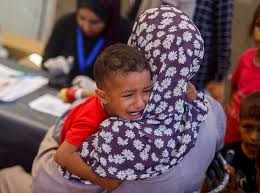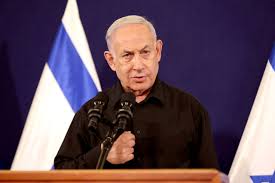
MOSCOW (RIA Novosti):For the first time in the history of the modern Olympic Games, the practice of boycotting was resorted to in 1956.
In 1956, the Melbourne Summer Olympics were boycotted by China due to the invitation to the competition from the Taiwan team. The PRC considers the island of Taiwan to be an integral part of its territory.
Subsequently, the PRC refused to participate in the Summer Olympics in 1960, 1964, 1968, 1972 and 1976, in which Taiwan was represented.
The games in Melbourne were also boycotted by the national teams of Egypt, Lebanon and Iraq amid the Suez crisis. The national teams of Spain, Switzerland and the Netherlands refused to participate in the Games, protesting against the introduction of Soviet troops into Hungary.
In 1964, two national teams – Indonesia and the DPRK – refused to participate in the XVIII Summer Olympic Games in Tokyo. These countries protested against the IOC’s decision to exclude athletes who took part in the Games of the New Emerging Forces (GANEFO), which were held in Jakarta in 1963 at the initiative of Indonesian President Sukarno, to the Olympics. The IOC has declared the GANEFO participants at the Olympics persona non grata. They turned out to be, in particular, 11 Indonesians and 6 North Koreans. Indonesia left the Games in protest, followed by North Korea.
In 1976, the XXI Summer Olympics in Montreal was boycotted by the Taiwan team. Due to Canada’s non-recognition of the island’s authorities, it was decided to prohibit its national team from being officially called the “Chinese team”. Canada, as a compromise, offered Taiwanese athletes to limit themselves to the private use of state symbols, but the Taiwanese authorities chose to refuse and boycott the Olympics.
In 1979, the IOC decided that the right to compete in the Olympics under the name “Republic of China” was given to the PRC, and Taiwan was to compete as “Chinese Taipei”. Since 1981, Taiwan has agreed to participate in the Olympic Games under this name.
The Montreal Games were also boycotted by most African countries. A few weeks before the start of the Olympics, African countries demanded that a team from New Zealand be banned from participating in the Games due to the fact that the athletes of this country played a rugby match with the South African national team (it was expelled from the IOC in 1970 due to the apartheid regime in the country). The IOC refused to remove New Zealanders from the Games, as rugby was not an Olympic sport. In response, more than 20 African and Arab countries boycotted the Olympics.
In 1980, the XXII Summer Olympics in Moscow took place against the backdrop of a massive boycott that US President Jimmy Carter announced in response to the Soviet invasion of Afghanistan in December 1979. Some countries, like Great Britain and Australia, supported the boycott, but allowed the athletes to decide for themselves whether to go to Moscow. As a result, 67 co-untries missed the Oly-mpics. Between 45 and 50 of them were probably for-ced to do so by the boycott.
Washington was joined – not only by NATO allies, but also by Iran, China and even socialist Romania.
Only 80 countries took part in the Games, the lowest since 1956.
In 1984, several countries from the socialist bloc did not go to the XXIII Summer Olympic Games in Los Angeles (USA). The National Olympic Committee of the Soviet Union explained the absence of the Games by the low level of safety for athletes. Another 13 countries expressed solidarity. In addition to the countries of the socialist bloc, Libya and Iran were among the participants in the boycott of the XXIII Olympic Games in Los Angeles. Iran has had a tough stance on boycotting any sporting event that Israel competes in.
In 1988, the DPRK national team refused to compete at the 24th Summer Olympics in Seoul (Republic of Korea). Pyongyang decided not to send its sports team to the Games, as the organizing committee for the preparation of the Seoul Olympics rejected Kim Il Sung’s proposal to transfer part of the sports competitions to the DPRK cities in order to demonstrate the unity of the Korean Peninsula. The official reason for this was the fact of the unceasing state of war between the two countries. The North Korean position was supported by Cuba, Nicaragua and Ethiopia and also announced their non-participation in the Games. The stadiums and other sports facilities prepared for the Olympic Games were used by the DPRK at the XIII International Festival of Youth and Students, held in Pyongyang a year later.
On December 6, 2021, the United States officially announced a diplomatic boycott of the Beijing Olympics. US officials will not attend the Winter Olympic Games in China, said a spokesman for the White House Jen Psak.
The post Cases of boycotting Olympic Games appeared first on The Frontier Post.






